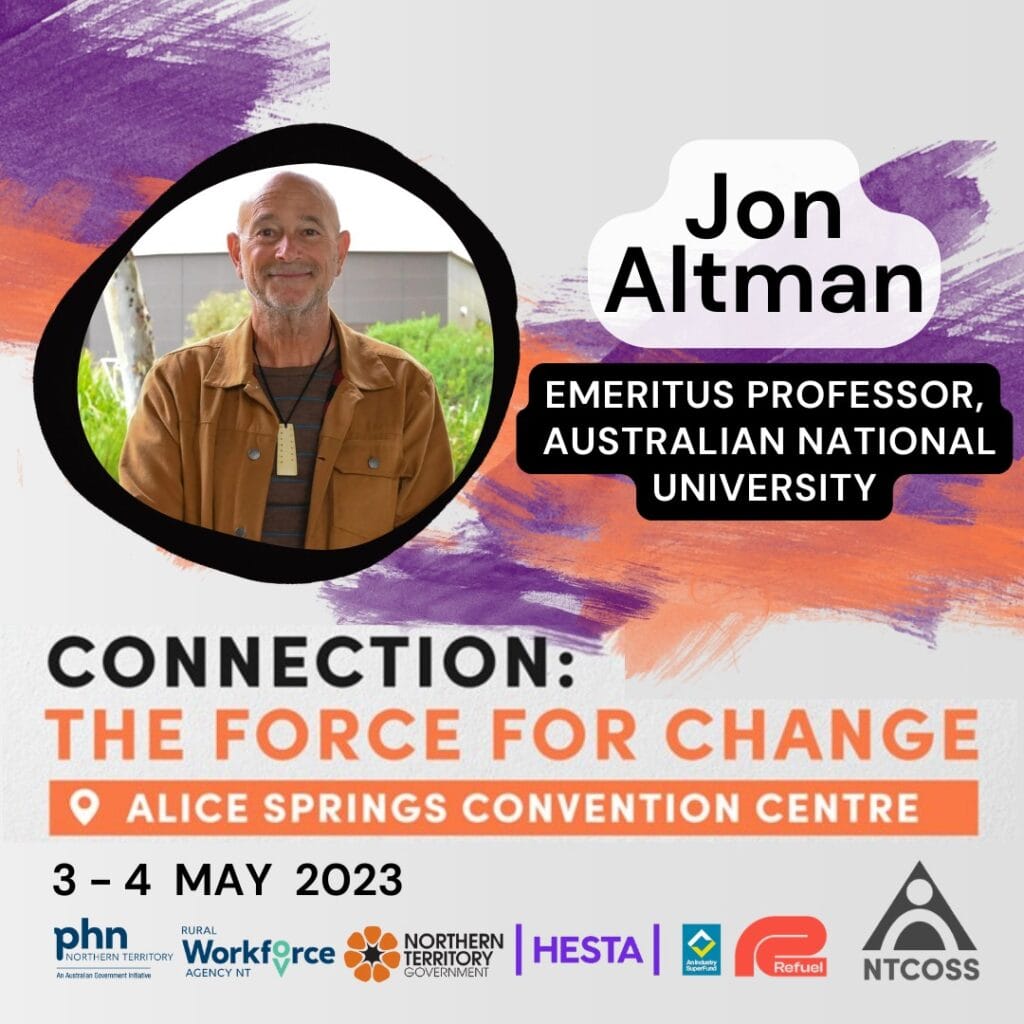
Emeritus Professor Jon Altman’s slide presentation
ANU Emeritus Professor Jon Altman presented at NTCOSS’s two-day conference in May 2023 in Mparntwe/Alice Springs, focused on the theme of Connection: The Force of Change.
Prof Altman provided a sobering reality check about the state of Aboriginal and Torres Strait Islander people in Australia.
He presented his findings on First Nations Deep Poverty and offered insights to drive community solutions. The Closing the Gap targets first produced in 2008 are going badly nationally. The statistics relating to Aboriginal Australians’ disadvantage are terrible.
The NT comes out looking worse compared to other places with deep poverty and things are going backwards in employment, education and training, related to a lack of policy logic, duplication of resources, and money wasted and not spent where it’s needed most.
Remoteness equalled an absence of mainstream opportunities, more than 50% of Aboriginal people in the NT live under the poverty line.
“This causes high morbidity, premature death and youth anomie and outbursts of deep discontent and social disruption,” Prof Altman said.
Prof Altman has worked as an advocacy academic for more than 40 years, including decades working with remote communities in Arnhem Land. He was an outspoken critic of the NT Intervention that has proven to be the policy failure anticipated at its outset.
Under the National Agreement and existing Federal Strategies, he acknowledged that there was far too little community control and far too much room for “buck passing.”
The statistics highlight the urgent need for action to address the systemic issues that contribute to poverty and disadvantage among Aboriginal communities.
But he also provided hope.
He explored the relationship between economic development and social justice, and the impact of climate change on vulnerable communities.
But we also need to rethink the concept of the economy in some of our very remote Aboriginal communities, he said, with the need for policy solutions that recognise different ways of living and diverse aspirations in cases where people aspire to live differently.
Three mega projects – including the Sun Cable solar project in the NT – are situated on Aboriginal land and will provide jobs.
The Aboriginal-owned Arnhem Land Fire Abatement Ltd helps reduce Australia’s carbon emissions. He showcased how remote ranger programs are engaged in fire management and carbon abatement programs with considerable success.
This is a good example of how Aboriginal communities can build a ‘real’ economy on country and at the same time fulfil cultural obligation in caring for country.
The model is not dissimilar to that of the Law and Justice Groups that will be expanded across NT communities over the next few years: enabling people to do things in their own communities that contribute to social wellbeing, safety and stronger families and connection to culture.
The solutions to the NTs problems will only be found by looking inward.
They start with listening to communities about what they need and the supports they want, Prof Altman said. Importantly, they involve backing smarter strategies that address systemic disadvantage by providing opportunities for people to have meaningful roles in their communities, either through work or volunteering, and reducing the likelihood they will become involved in crime.
Addressing the justice challenge in the NT starts with tackling these complex drivers of offending, not just the crime itself.